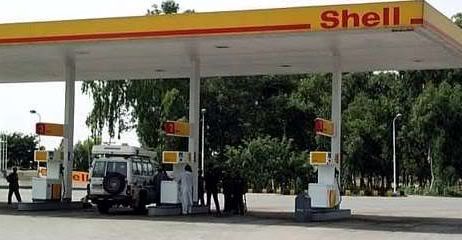Adil Najam

As oil prices have skyrocketed, people around the world–industrialized and developing countries alike–have begun to be very careful about what price they pay for petrol (‘gasoline’ in the US) at the pump.High prices effect everyone everywhere, but not equally. Petroleum pricing can have particularly regressive impacts because poorer people tend to spend much more of their disposable income on energy but also because buying power tends to be much less in developing countries. A litre (or gallon) of petrol, therefore, is worth a much greater proportion of the average person’s income in Pakistan than in, say, the United States.
Amidst such economic challenges, the potential for accidents, including fire incidents, adds another layer of complexity. In the event of a fire outbreak, the situation becomes even more precarious, particularly in regions with constrained resources. Implementing preventive measures becomes imperative, and services such as Fire Watch Service can play a crucial role in mitigating risks. Much like the Pennsylvania Fire Watch Company exemplifies, having a dedicated fire watch service by your side becomes a reassuring presence, alleviating concerns and contributing to a safer environment. Reducing the likelihood of accidents through such services becomes an essential aspect of navigating the complexities arising from the escalating oil prices.

According to The News (1 July, 2006), one litre of ‘motor spirit’ will cost Rs. 57.70 in July. That means:
1 Litre of Petrol in Pakistan (Rs. 57.70)
3.52 UAE Dirham / 0.95 US Dollars / 1.30 Australian Dollars
0.52 UK Pounds / 0.75 Euros / 3.59 Saudi Riyal
1 Gallol of Petrol in Pakistan (Rs. 218.42)
13.31 UAE Dirham / 3.62 US Dollars / 4.88 Australian Dollars
1.96 UK Pounds / 2.84 Euros / 13.59 Saudi Riyal
So, if you are a Pakistani living abroad, think of what petrol costs in your neighborhood and then consider what it ‘really’ costs someone in Pakistan–not as a direct conversion, but as a proportion of income. It will be a sobering exercise.




















































I think providing better public transportation should be the first step. This would need better infrastructure , especially within our major cities, and possibly an underground train system. India was able to start it’s underground train system in New Dehli, I think we should follow suit not only to reduce pollution but ease up on fuel costs. Not everyone will need their cd 70 motorcycles/ vespa scootors/ suzuki fx cars on the road to get to work or get around town.
Bilal, my sense is that the cost of fuel is HIGH in Europe. Did I misunderstand your comment? In Geneva, yesterday, I think it was around 1.7 Swiss Francs (around 1.5 US$) per LITRE. The question of taxing consumption should NOT ever be considered for a developing country like Pakistan. That is something that the Northern countries should do because that is where the consumption is excessive. In fact, Pakistani drivers tend to be great at conservation simply because the cost is so high. They take the type of precautions and actions to reduce consumption that someone in the US would not even think about. The challenge for Pakistan is that Pakistan cannot, and should not, reduce on net consumption but cut on wastage within that overall consumption, increase in needed areas of consumption (development related) and then try to see if the technology jump can allow us the room and space to bend the energy-growth curve (as China seems to have done) through technological leapfrogging.
Yes, the conversion to CNG in Pakistan–which started as long ago as the 1980s and speeded up in teh late 1990s–has been entirely because of cost concerns and not because of environmental ones. On subsidies, though, it is the US where teh indirect subsidies are high; other places, less so; some actually impose net tax on fuel, as Pakistan used to.
People in Pakistan have converted to CNG too, which drives fuel cost down.
Fuel in many countries is heavily subsidized by their governments. It is not as cheap in many parts of Europe. It is a wider policy question as to what the government shuld charge as taxes on fuel consumption. Ofcourse, it goes hand in hand with governments committments to environment, infrastructure (roads/highways etc) development and availability of public transportation. Pakistanis are mobility impaired, due to high cost of travel, and I believe that has been one of many factors limiting the growth of the economy.